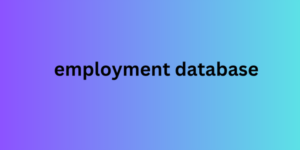5 Types of Structured Data Your Competitors Probably Aren't Using
Posted: Mon Dec 09, 2024 8:20 am
With Rank Brain, Panda and BERT algorithms, talking to bots has become a little more important. Structured data is one of the most effective optimization methods we can use to talk to Googlebot.
My main purpose in the article is to tell you what you can do in this area differently from your competitors and to ensure that you add the best method that Google wants to your site without any problems. That's why I wrote the schema codes with JSON-LD; because Google recommends JSON-LD in structured data . You can also look at the guide we prepared for Schema markup optimization .
With the structured data you add to the site, you can be included in many results, as you can see in the graphic below.
According to webdatacommons.org , the rise of product schema codes written in JSON-LD continues. You can see the rise since 2018 in the graph below.
Assuming you are in the e-commerce industry, your employment database competitors are probably already using product schema markup, so I won’t suggest you use additional product markup. Instead, I will try to explain what types of structured data you can use that are different from your competitors.
Additionally, Google does not guarantee that every type of structured data added will be displayed in search results;

If you're ready, let's get started!
1- Application Schema
Do you use a mobile application? Would you like to show your mobile application better on Google using SERP features? With Application schema, you can show your mobile application information on search results pages.
Example;
The example on Google's own site is actually a higher-level example. It uses SoftwareApplication for this schema type; however, the final part of the article states that we can make this a bit more niche .
Assuming that our site has a mobile application, we can use the MobileApplication structured data markup below on our home page.
My main purpose in the article is to tell you what you can do in this area differently from your competitors and to ensure that you add the best method that Google wants to your site without any problems. That's why I wrote the schema codes with JSON-LD; because Google recommends JSON-LD in structured data . You can also look at the guide we prepared for Schema markup optimization .
With the structured data you add to the site, you can be included in many results, as you can see in the graphic below.
According to webdatacommons.org , the rise of product schema codes written in JSON-LD continues. You can see the rise since 2018 in the graph below.
Assuming you are in the e-commerce industry, your employment database competitors are probably already using product schema markup, so I won’t suggest you use additional product markup. Instead, I will try to explain what types of structured data you can use that are different from your competitors.
Additionally, Google does not guarantee that every type of structured data added will be displayed in search results;

If you're ready, let's get started!
1- Application Schema
Do you use a mobile application? Would you like to show your mobile application better on Google using SERP features? With Application schema, you can show your mobile application information on search results pages.
Example;
The example on Google's own site is actually a higher-level example. It uses SoftwareApplication for this schema type; however, the final part of the article states that we can make this a bit more niche .
Assuming that our site has a mobile application, we can use the MobileApplication structured data markup below on our home page.